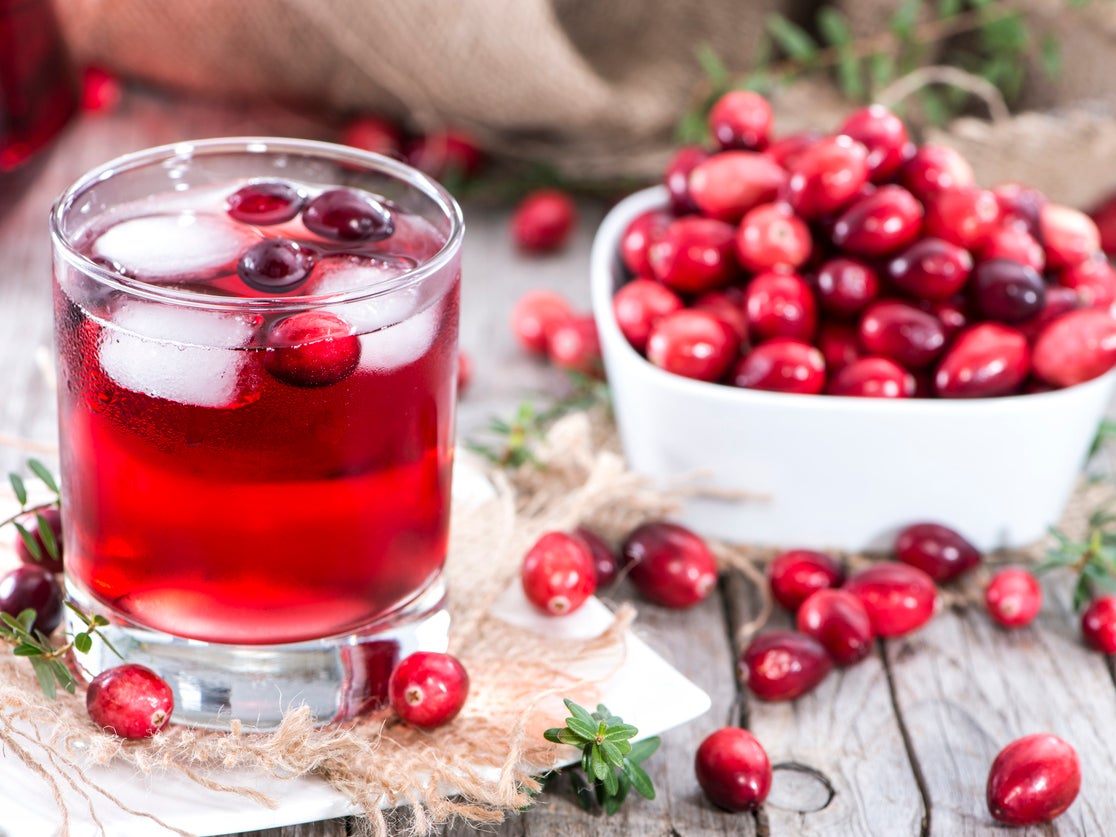Little to ‘no evidence’ cranberry juice cures urine infections, new health guidelines claim
Healthcare professionals are being urged to prescribe the correct antibiotics when treating patients with urinary tract infections

Drinking cranberry juice has long been perceived as an effective treatment for urinary tract infections (UTIs), despite there being little evidence to back the old wives’ tale.
New health guidelines have now been released in an effort to help healthcare professionals treat patients with UTIs more sufficiently and to debunk any myths surrounding commonly practised home remedies.
The guidance published by the National Institute for Health and Care Excellence (NICE) states that there is very little evidence that consuming cranberry juice can reduce the risk of developing UTIs for those who suffer from them regularly, and “no evidence” that it can treat cystitis.
UTIs are extremely common, with women at greater risk than men of developing one.
This is due to women having shorter urethras than men, which means that the bacteria doesn’t have to travel as far to reach the bladder and thus cause a UTI.
NICE is urging healthcare professionals to conduct a thorough check of their patients’ symptoms before prescribing antibiotics when treating UTIs.
“We recognised that the majority of UTIs will require antibiotic treatment, but we need to be smarter with our use of these medicines,” said Professor Mark Baker, director for the centre of guidelines at NICE.
“Our new guidance will help healthcare professionals to optimise their use of antibiotics.
“This will help to protect these vital medicines and ensure that no one experiences side effects from a treatment they do not need.”
While prescribing antibiotics is an effective method of treatment for UTIs, NICE warns that issuing the wrong medicine can increase the likelihood of an individual becoming resistant to the antibiotics, as outlined by Public Health England.
“Our surveillance shows that more than a third of laboratory confirmed E.coli UTIs display resistance to key antibiotics,” said Dr Susan Hopkins, deputy director for AMR (Antimicrobial Research Collaborative) and healthcare epidemiologist consultant in infectious diseases and microbiology at Public Health England.
“We are therefore urging GP practices and hospitals to follow the new guidelines so they can prescribe antibiotics appropriately to their patients.
“This will preserve our antibiotics so that they not only save lives today but can continue to save lives tomorrow.”
The evidence that cranberry juice can be used as a preventative measure for those who regularly suffer from UTIs was described in the guidelines as “inconclusive”.
Join our commenting forum
Join thought-provoking conversations, follow other Independent readers and see their replies
Comments
Bookmark popover
Removed from bookmarks